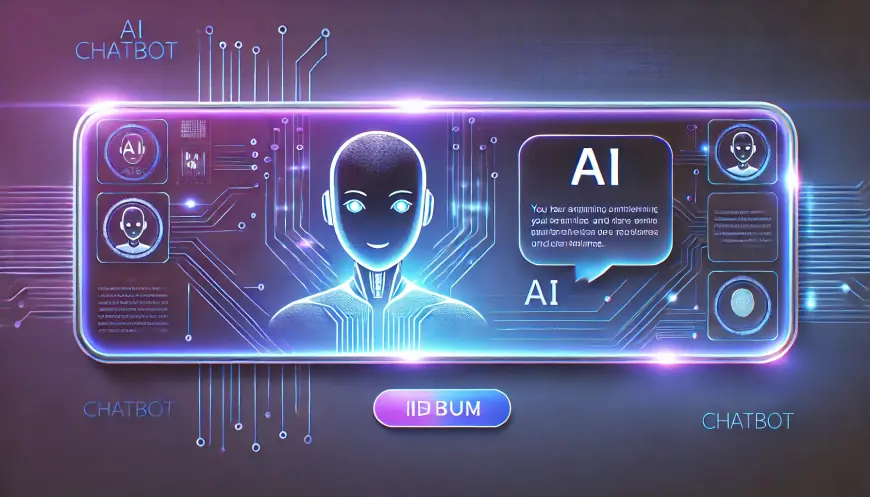How Conversational AI Is Changing the Way We Communicate
Conversational AI refers to artificial intelligence systems designed to simulate human-like conversations. These include chatbots, virtual assistants, and voice recognition systems that assist users in various ways.

The Shift Toward AI-Powered Conversations
Technology has always played a significant role in shaping the way people communicate. From handwritten letters to instant messaging, advancements in technology have continuously influenced interactions. Now, conversational AI is taking this evolution a step further by transforming how individuals and businesses communicate daily.
Conversational AI refers to artificial intelligence systems designed to simulate human-like conversations. These include chatbots, virtual assistants, and voice recognition systems that assist users in various ways. Businesses are increasingly relying on these AI-driven tools to manage customer support, automate responses, and even provide companionship.
The Role of Conversational AI in Business Communication
Businesses have recognized the efficiency of conversational AI in streamlining communication with customers. Companies now use chatbots and AI-driven assistants to handle inquiries, process transactions, and provide support around the clock. This has reduced the workload on human agents while improving customer satisfaction.
For instance, many e-commerce platforms integrate AI chatbots to assist customers with order tracking, product recommendations, and issue resolution. In comparison to traditional customer service methods, AI-driven systems can manage multiple queries at once, making interactions faster and more efficient.
The Personalization of AI Conversations
AI is no longer limited to generic responses. It has advanced to a point where it can provide personalized recommendations based on user behavior and preferences. Virtual assistants, for example, can remember past interactions and tailor responses accordingly.
This level of personalization is evident in AI-driven customer service platforms. They analyze previous conversations and adapt their responses to provide relevant information. In the same way, AI-powered applications in the healthcare sector offer customized advice based on an individual’s medical history.
Conversational AI in Social Interactions
AI is also making its way into personal conversations. Some individuals turn to AI-driven companions for interaction and emotional support. These virtual entities are designed to simulate natural conversations, making them engaging and interactive.
Rubii AI, for instance, is an AI Girlfriend that uses sophisticated conversational algorithms to provide companionship and simulate real-time interactions. While some might view AI companionship as unconventional, others find comfort in engaging with these virtual personalities.
The Use of Conversational AI in Language Translation
Language barriers have long been a challenge in global communication. Conversational AI is helping bridge this gap by providing real-time translation services. AI-powered translators assist individuals in communicating across different languages without the need for human intervention.
Many businesses and travelers rely on these AI-based tools to interact with people from diverse linguistic backgrounds. AI translation services are not only efficient but also adaptable, learning from new data to improve accuracy over time.
The Impact on Customer Service Industry
Customer service is one of the industries that have experienced a significant transformation due to conversational AI. Traditionally, businesses had to rely on human agents to manage inquiries, leading to long wait times and inconsistencies in service quality.
However, AI-driven chatbots now handle most routine questions, allowing human agents to focus on complex issues. This shift has resulted in faster response times and improved customer experiences. Similarly, AI-powered voice assistants are being integrated into call centers to enhance interactions and provide quick resolutions.
AI in Marketing and Sales Communication
Marketing and sales teams are also benefiting from conversational AI. AI-driven chatbots engage with potential customers, provide product recommendations, and assist with purchasing decisions. These automated systems analyze customer behavior to offer tailored suggestions, making online shopping more interactive.
In particular, AI plays a crucial role in social media marketing by engaging with audiences through automated responses. Some businesses use AI chatbots to initiate conversations, guide users through a sales funnel, and answer frequently asked questions.
AI-Powered News and Information Sharing
Keeping up with the latest developments in AI and technology has become easier with AI-driven news aggregators. These platforms collect and organize relevant information, ensuring that users stay informed.
Gramhirpro, for instance, provides updates on the latest AI and tech news, helping readers stay ahead of industry trends. AI-powered news platforms analyze user preferences and deliver content that aligns with their interests.
Ethical Concerns and Limitations
Despite the benefits, conversational AI raises ethical concerns. Data privacy is a major issue, as AI systems often collect and analyze user information. Many individuals worry about how their data is stored and whether AI interactions are truly secure.
Additionally, there are concerns about AI replacing human jobs. While AI improves efficiency, it also reduces the demand for human employees in certain sectors. Businesses must strike a balance between automation and human involvement to ensure ethical AI usage.
The Future of Conversational AI
As AI technology continues to evolve, its impact on communication will only grow stronger. Future advancements may bring even more natural and intuitive interactions between humans and AI. Voice recognition, emotion detection, and context-aware AI will likely become more sophisticated, making digital conversations feel even more human-like.
Still, human interaction remains irreplaceable in many aspects of communication. While conversational AI enhances efficiency, the value of genuine human connection will always hold significance. Businesses and individuals must use AI responsibly to complement human communication rather than replace it entirely.












